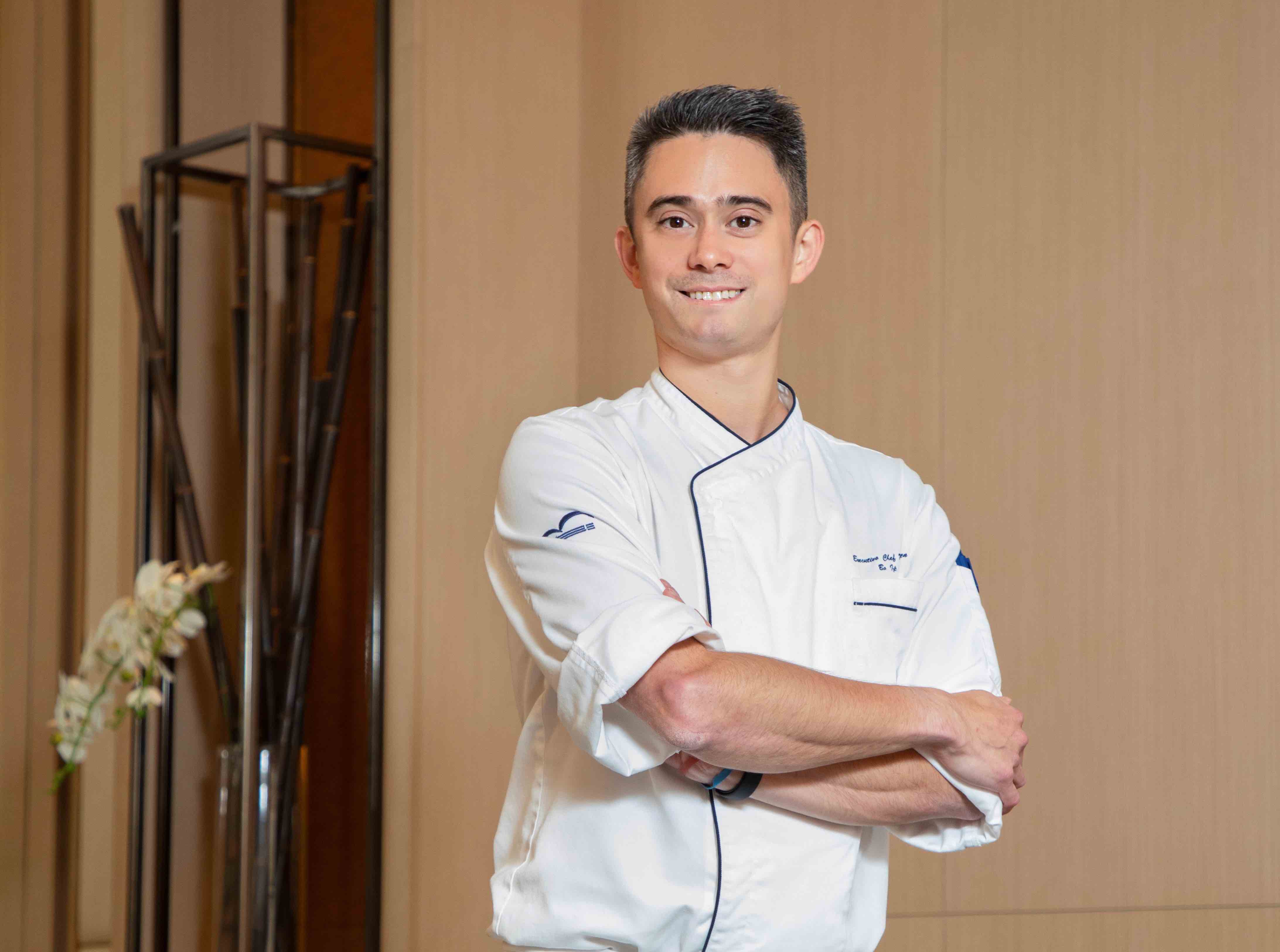Posted by 178 Degrees on 25th February 2019
A Recipe to Fight Climate Change
Continuing with our Chef's Table Interviews series, Bo Sorenson shares his thoughts with us about Hong Kong’s culinary scene.
Why did you decide to become a chef and how did you get started?
Growing up in Hong Kong, I was surrounded by a bounty of food. Whether it was my grandmother’s cooking or my parents being in the F&B industry, it was deeply rooted in me from a very early age.
What are you doing now?
I’m currently the Executive Chef (Western Kitchen) at the Hong Kong Convention and Exhibition Centre.
What’s your favourite part of the job?
Being able to express myself through food and seeing the pleasure people get afterwards. Collaborating amongst so much talent, and producing something very unique and special.
Which ingredient do you most like working with and why?
Australian bush products, like finger limes. Also small pearls like caviar bursting with zesty flavours when eaten and are rich in folate, potassium and even vitamin E.
What’s your favourite dish to cook at home?
Whatever is in season that I can get my hands on at the local markets in Wan Chai. I cook a lot more vegetables when I’m at home, and a lot of soups at the moment. I don’t have the luxury of an oven in my flat so I’m a little limited. Otherwise a home classic like spaghetti bolognese is always my go-to choice.
What’s been your best meal in the last six months?
A smørrebrød (open-faced Danish sandwich) from restaurant Aamanns 1921 in Copenhagen. It reminded me of what my dad used to make but they took it to the next level, making it an edible art piece. It was perfection on a plate!
What do you think is the biggest challenge in the culinary industry?
I think traceability continues to be a top priority and the challenge for successful implementation is difficult for many reasons. There are too many overlapping and conflicting demands from national regulators around the world with different regulations on trace elements, pesticides or allergens. Food fraud for economic gain is a global challenge.
A close second is the shortfall in staffing of younger chefs driven by cultural barriers, and generally undervaluing hospitality as a long-term career. We tend to value university qualifications, and hospitality is something you do while you’re in university.
What’s the future of food?
A stronger focus on regenerative food to fight climate change and to produce healthier food by building healthier soils. The key is not to harm the soil but to regenerate and revitalize it using permaculture principles. This method of diverting CO2 into the soil nourishes the crops and enables us to move away from chemical pesticides and towards organic inputs like compost.
We also need to choose more sustainable seafood to ensure future generations will still be able to feed from the sea. Hong Kong ranks second in terms of seafood consumption in Asia and the eighth largest seafood consumer in the world, so the effect of favouring sustainable seafood would be significant.
Lastly, sourcing seasonal local ingredients, which is harder to do in Hong Kong, and being more conscious of what goes in the bin.


